Use your own filter
By Christiaan Vorkink, July 16, 2012
True Entrepreneur Corps 2012 Fellow Peter Casinelli is a junior at Boston College majoring in Computer Science. Peter is spending his summer working at True company Message Bus, and shares what he is learning in the TEC program below:
Every Thursday, I am lucky enough to visit True Ventures’ office in San Francisco with my fellow TEC interns and hear the many failures and successes from founders, startup employees and venture capitalists. Although it has only been five weeks since the start of the TEC program, there has been no shortage of invaluable advice and inspiring stories from our weekly Thursday experiences.
The most difficult part of these sessions has been processing and forming my own methodologies based on the experiences about which we hear. Sometimes we are told you should work at a large company out of college in order to understand how large and scalable processes work. Other times we hear that working at a large company is a waste of time if you want to start your own company. Just recently, I read in Rework that you should learn from successes rather than failures since failures show you how to not do something. But, I’ve also heard that you should fail as much as you can and learn from these failures by quickly adapting. So how should we react to what I am interpreting as mentor- and concept-overload?
Listen to every piece of advice you can get, but, at the end of the day, use your own filter and make your own conclusions.
We recently heard Micah Baldwin from Graphicly speak to us about finding out what type of entrepreneur you are. If you believe you are an entrepreneur and not an intrepreneur, then advice from an intrepreneur may not be applicable to your circumstances. Recognize what type of entrepreneur you want to be, what goals you have, and focus on being yourself throughout the whole process. Then, you can decide on what advice you want to follow while having the context of where the advice is coming from, and how it applies to the problem you are trying to solve.
At times, we hear advice on how to be just like Mark Zuckerberg, Steve Jobs or Bill Gates. But, trying to follow the same exact path as these people will most likely result in failure. Every person is different and advice is always given from a certain point of view; sometimes this context has nothing to do with the problem you are trying to solve. Should your company approach a problem in the same way Facebook did despite the fact that your company has nothing to do with sharing information with friends?
Despite hearing many different ways to tackle the same problem, there are some consistencies as well as lessons to be learned from people like Zuckerberg, Jobs, and Gates. Here are some bits of advice in entrepreneurship that have made it through my filter this summer:
Build out your network —Almost every venture capitalist and entrepreneur that has spoken during this program has made it clear that companies that raise venture capital were introduced through a network. That means cold calling and e-mailing a VC almost never gets through. In the eyes of a VC, it’s your first test—does your network allow you to get into touch with a VC? If it doesn’t, then you are forced to build your network. If you can’t build your network, how will you hire your first employees?
Create a culture in which you can succeed —You always hear stories about terrible working conditions and unmotivating circumstances. If you create a great place to work, innovation is much easier.
Have a mission statement that lasts —If you have a mission statement that separates itself from a specific product, you can succeed even when one of your products does not. You may need to pivot your product idea, but it should still set out to accomplish the same mission.
It’s never an easy path— Most of the public only sees overnight entrepreneurial success stories in the media. What they don’t see is the countless hours, days and years spent building a company to get to a certain stage. It takes time to conceptualize a product for a market, to build a talented team, and to raise venture capital just to build more of the product, hire more employees, and raise the next round. All of this comes before an entrepreneurial success.
(Reposted from the TEC Blog with Peter’s permission.)

